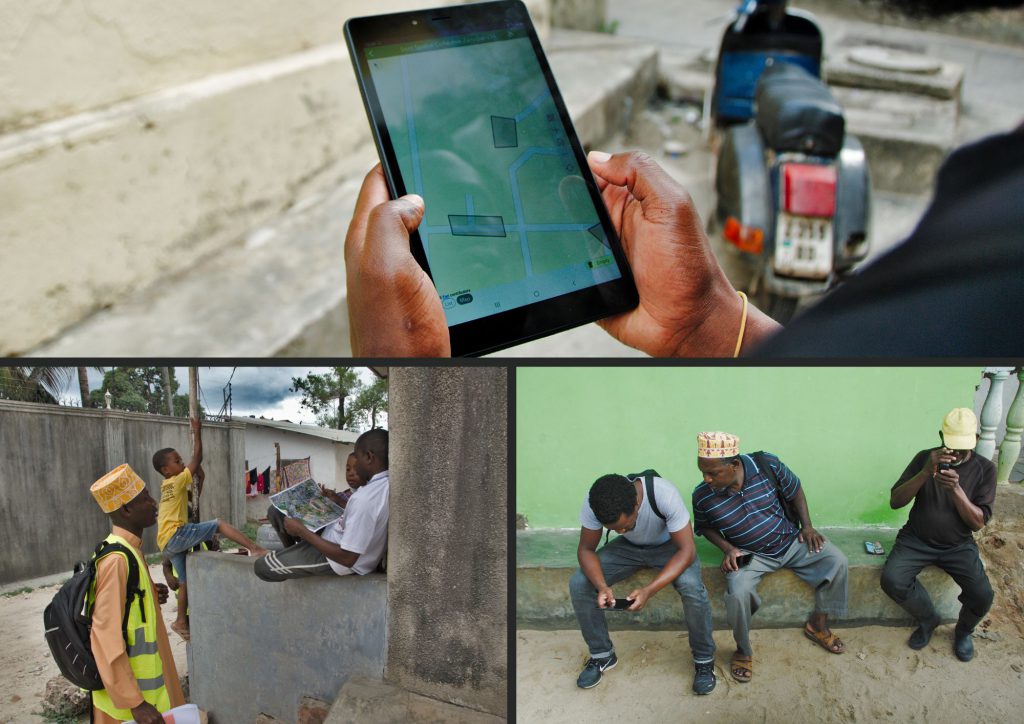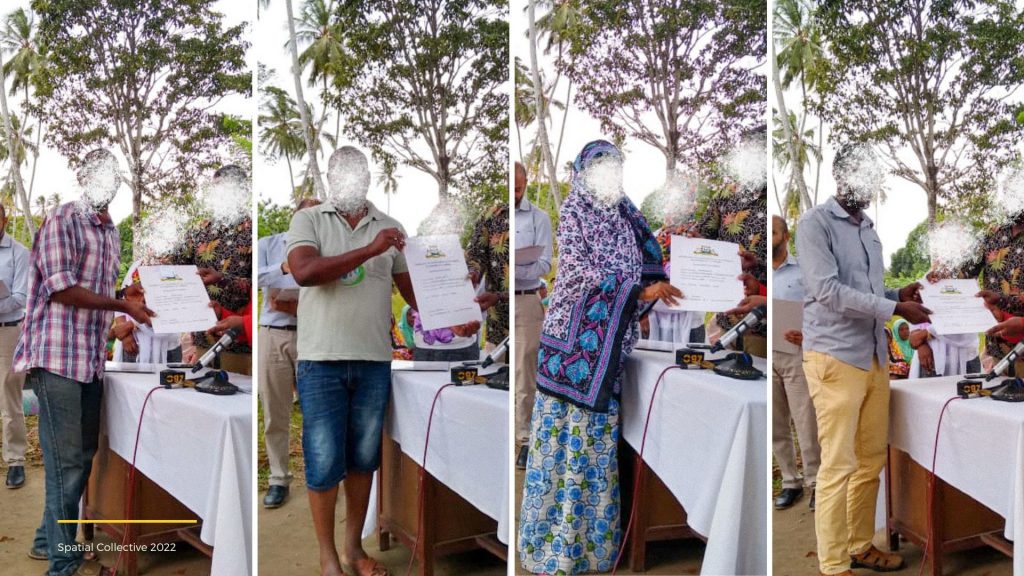Consensus in Documenting Land Rights
January 26, 2023A mixed-method approach to solid waste mapping in Mogadishu
March 22, 2023Using cutting-edge technologies to simplify the process of obtaining proof of property ownership in Zanzibar
Our solution is designed to streamline and modernize the existing paper-based data collection processes and parcel mapping methodologies, while also addressing the limited professional human capacity and high unit costs of land data collection. Working in partnership with the Commission for Lands and leveraging modern technology, including drone imagery, digital tools, and cloud computing, we have developed a streamlined process that can issue land certificates in months rather than years. Our approach consists of several components, each of which was developed to tackle a specific challenge.
First, we digitized the data collection processes, moving from paper-based methods to digital methods. This allowed us to improve data capture, enhance data security, and eliminate the existing problem of loss of paper records. By using digital methods, we were able to collect and store land data more efficiently and effectively, ensuring that it was accessible and secure.
Second, we set up a fit-for-purpose parcel mapping component that utilized high-resolution aerial imagery from drones and tablets’ in-built geolocation capabilities. This cost-effective solution delivered sub-meter mapping accuracy that was legally required for parcel demarcation. By using drones and tablets, we were able to produce accurate and reliable parcel maps more quickly and at a lower cost than traditional methods.
With the help of the Cadasta Foundation and customized ESRI‘s ArcGIS Survey 123, we completed the technical setup and consolidated the digital data collection methodology and the parcel mapping component into one simplified data collection tool. This tablet-based software enables in-situ capture of parcel boundary and landowner’s bio-data at a fraction of the time and cost previously required. By simplifying the data collection process, we were able to reduce the time and cost required to collect land data, making it more accessible to landowners and other stakeholders.

Using digital tools to document land rights
For data collection, we relied on the young tech-savvy communities in Zanzibar, by training a dozen youths in using the developed tool. We also built the capacity of existing surveyors to manage the trained youth, effectively solving the human capacity challenges by enabling a large pool of workers to be deployed and speeding up the data collection process. By engaging local communities and building local capacity, we created a sustainable solution that empowered the people of Zanzibar to take ownership of the land adjudication process.
Finally, we made the adjudication process more straightforward and cost-effective for the landowners by collecting all the required information in the comfort of their homes. This door-to-door approach saved time and money for the landowners who previously had to travel to and from the land adjudication offices to submit various land documents. This approach encouraged the participation of previously marginalized landowners and simplified the adjudication process for everyone involved.
Our digital data collection solution has shown significant improvements compared to traditional methods. The old method required at least 24 months, including legally mandated waiting periods, to collect data for land adjudication. However, our solution managed to document over 1000 land parcels and issued more than 100 government-approved land titles in only a few months. This demonstrated the potential to produce land titles at scale and in a significantly shorter time frame and at a reduced cost. As a result, our solution has received support from various stakeholders, including the government, survey professionals, and landowners, who view it as a proactive and efficient approach to land documentation.

Citizens receiving Certificates of Occupancy
We believe that our solution has the potential to transform land adjudication in Zanzibar and improve access to property rights for its citizens.
Additional information about the initiative can be found here:
https://news.trust.org/item/20220726100224-q05uk
https://www.reuters.com/article/tanzania-housing-tech-idUSKBN2841O4


